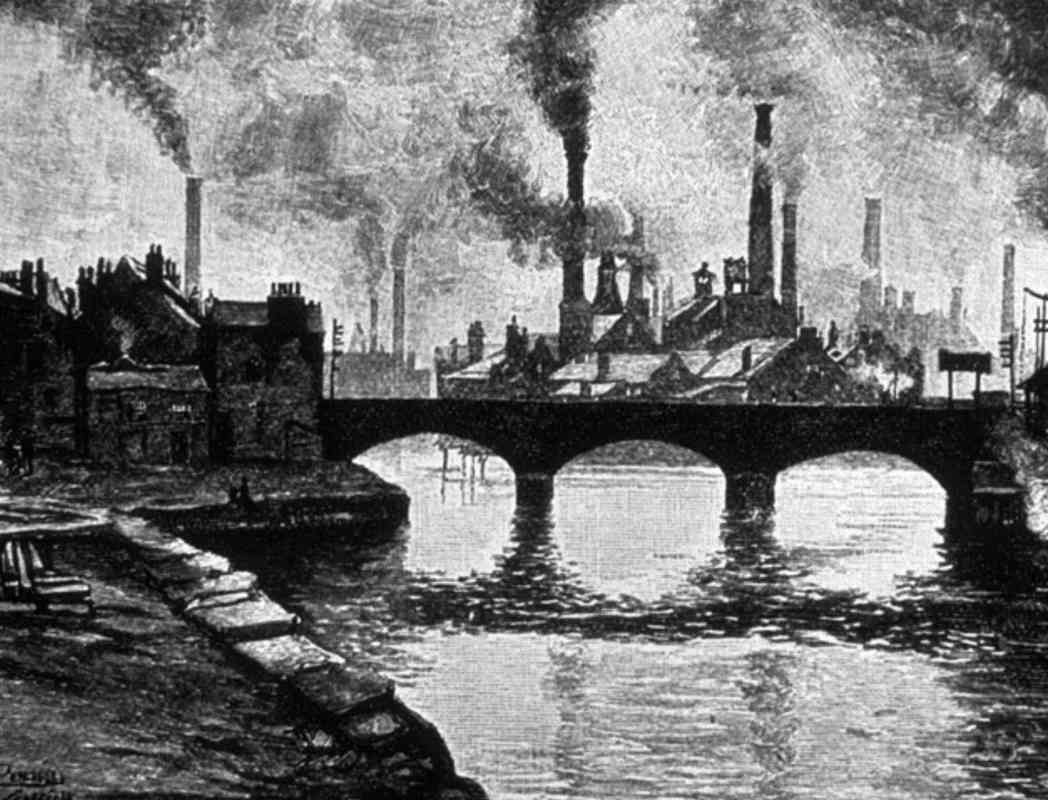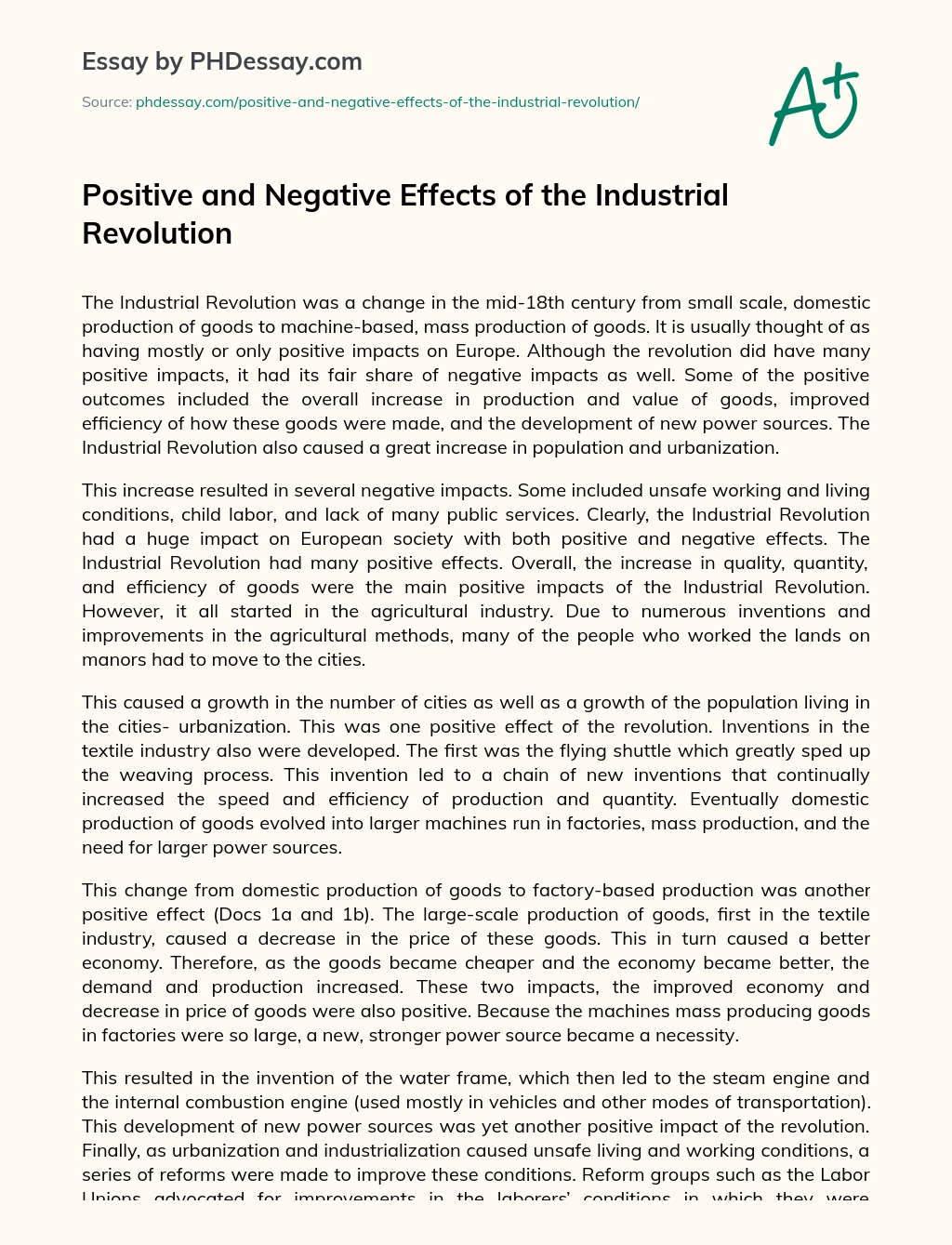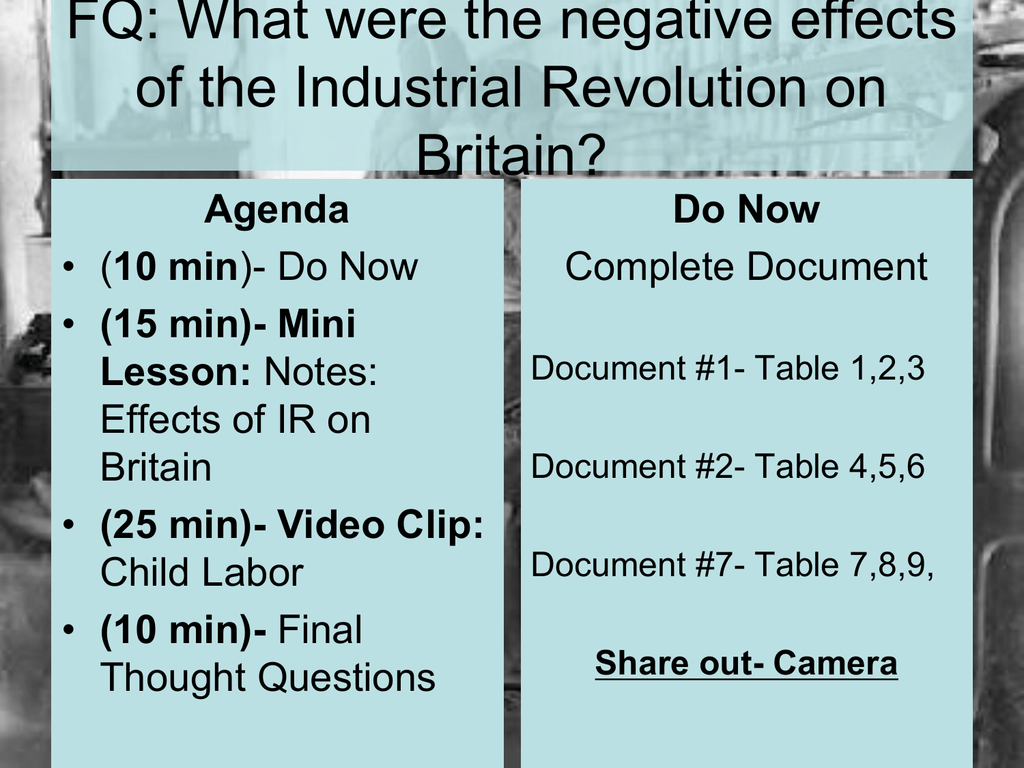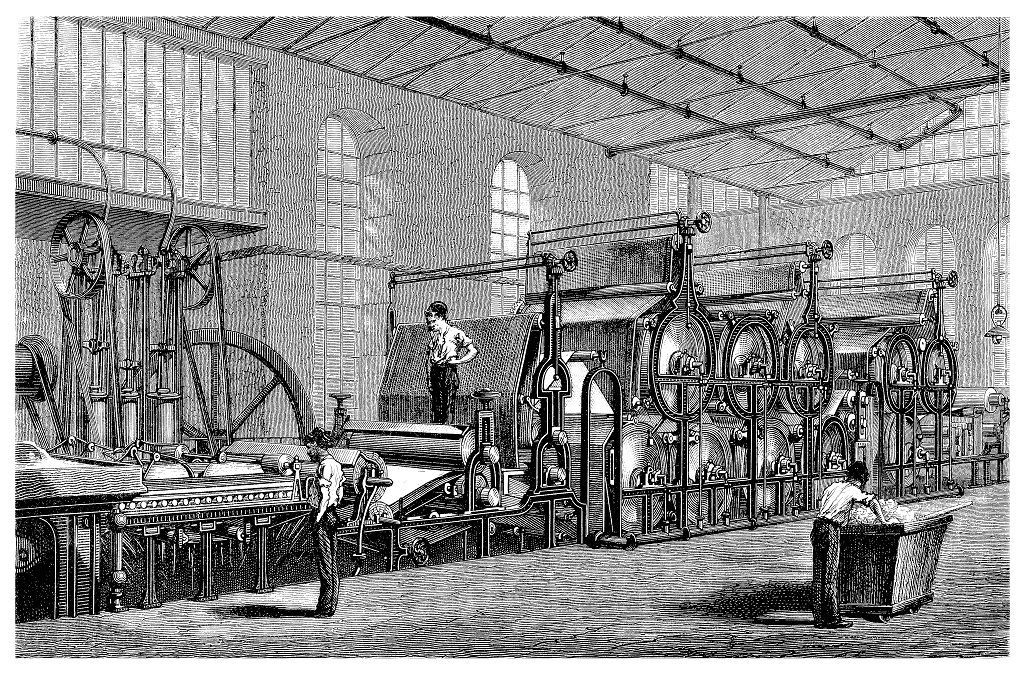The Industrial Revolution, which took place from the 18th to the 19th century, was a period of great change and innovation that had a profound impact on the world. It marked the transition from an agricultural, handcrafted economy to a modern, industrialized one, and it brought about significant improvements in productivity, transportation, and communication. However, like all major technological and social shifts, the Industrial Revolution also had its fair share of negative consequences.
One of the most significant positive effects of the Industrial Revolution was the increase in productivity. With the introduction of new machines and methods of production, workers were able to produce goods faster and more efficiently than ever before. This led to a rise in living standards, as people were able to afford more and better quality goods, and it also facilitated the growth of trade and commerce.
Another positive effect of the Industrial Revolution was the development of new forms of transportation and communication. The steam engine, which was invented during this time, revolutionized transportation by making it possible to travel long distances quickly and efficiently. The telegraph and the telephone, which were also invented during this period, greatly improved communication by making it possible to transmit information over long distances almost instantaneously.
However, the Industrial Revolution also had its share of negative consequences. One of the most significant of these was the exploitation of workers. Many industrialists were more concerned with maximizing profits than with the well-being of their employees, and they often paid low wages, provided poor working conditions, and made little effort to protect the health and safety of workers. This led to widespread poverty, disease, and premature death among the working class.
Another negative effect of the Industrial Revolution was the pollution of the environment. The factories that sprang up during this period were often located in urban areas, and they released large amounts of smoke and other pollutants into the air, which had negative impacts on the health of both people and animals. The Industrial Revolution also contributed to the depletion of natural resources, as the demand for raw materials increased dramatically.
In conclusion, the Industrial Revolution brought about many positive changes that have had a lasting impact on the world. However, it also had its share of negative consequences, such as the exploitation of workers and the pollution of the environment. It is important to remember that while technological and social progress can bring great benefits, it is also important to consider the potential negative impacts and work to mitigate them.







